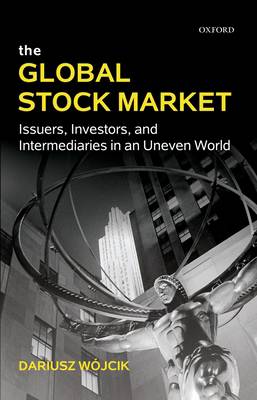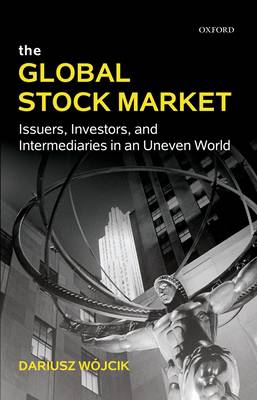
- Afhalen na 1 uur in een winkel met voorraad
- Gratis thuislevering in België vanaf € 30
- Ruim aanbod met 7 miljoen producten
- Afhalen na 1 uur in een winkel met voorraad
- Gratis thuislevering in België vanaf € 30
- Ruim aanbod met 7 miljoen producten
Zoeken
The Global Stock Market
Issuers, Investors, and Intermediaries in an Uneven World
Dariusz Wojcik
Hardcover | Engels
€ 193,45
+ 386 punten
Uitvoering
Omschrijving
Why do some companies stay out of stock markets? How crucial are stock markets for competition between financial centres? How can local information help investors outperform the market? While mainstream financial economics treats stock markets as consisting of anonymous actors interacting in space, with no consideration of the friction caused by distance or geography, this book offers a comprehensive and up-to-date picture of the global stock market by focusing on the relationships between issuers, investors, and intermediaries, and how these relationships impact on the performance of stock markets and the economy of cities, countries, and the world. The book uses rich data and global case studies to examine the rise of emerging markets, the impact of the global financial crisis, the revolution in the stock exchange business model, and the continued dominance of London and New York as stock market centres. Drawing on economic geography, financial economics, sociology, history, and globalization studies, the book explores the geographical constitution and footprint of stock markets and contributes to the broader debate on the role of stock markets in the global economy. Its conclusions are relevant to investors, companies issuing stocks, exchanges, analysts, investment banks, and policy-makers.
Specificaties
Betrokkenen
- Auteur(s):
- Uitgeverij:
Inhoud
- Aantal bladzijden:
- 224
- Taal:
- Engels
Eigenschappen
- Productcode (EAN):
- 9780199592180
- Verschijningsdatum:
- 21/07/2011
- Uitvoering:
- Hardcover
- Formaat:
- Genaaid
- Afmetingen:
- 157 mm x 236 mm
- Gewicht:
- 476 g

Alleen bij Standaard Boekhandel
+ 386 punten op je klantenkaart van Standaard Boekhandel
Beoordelingen
We publiceren alleen reviews die voldoen aan de voorwaarden voor reviews. Bekijk onze voorwaarden voor reviews.











